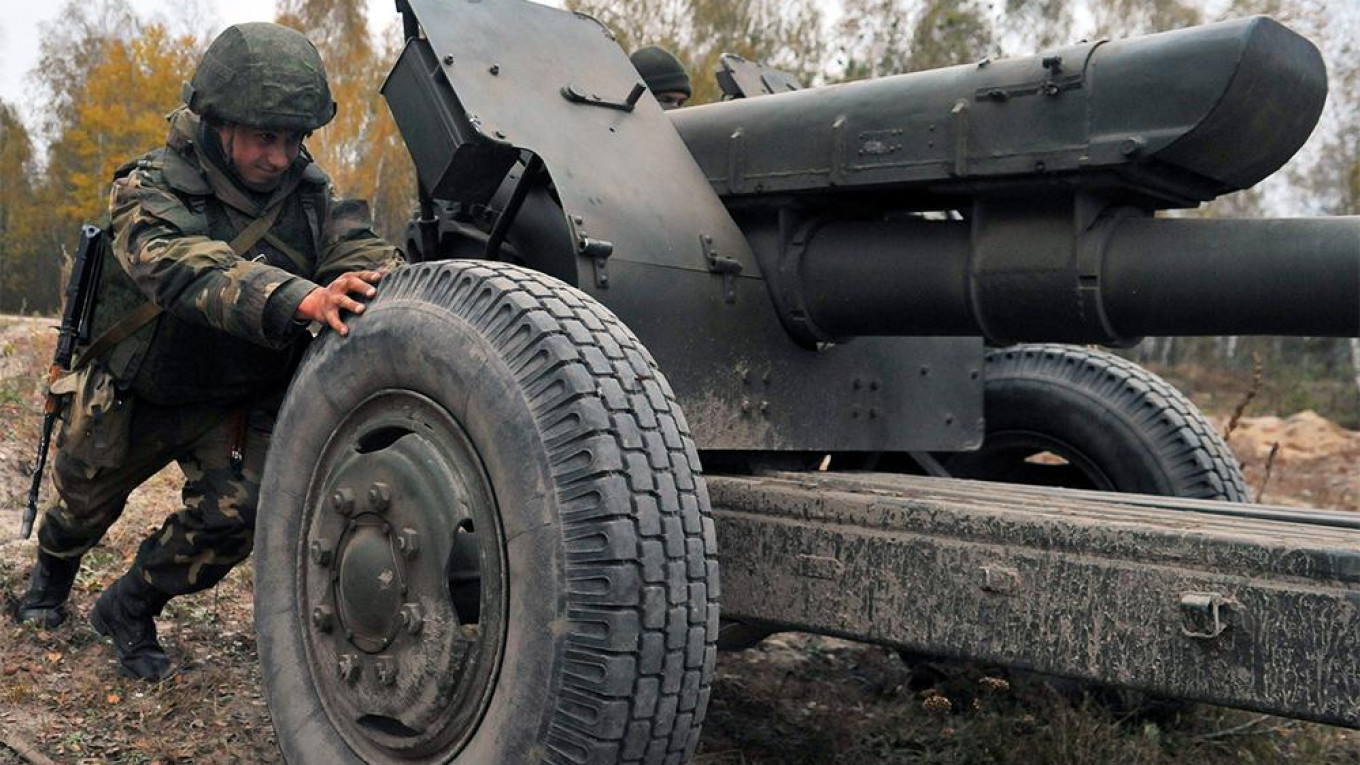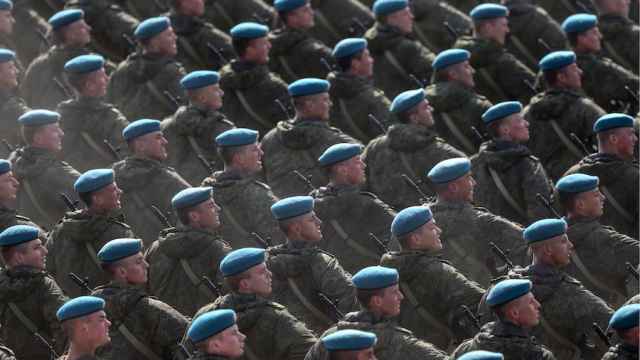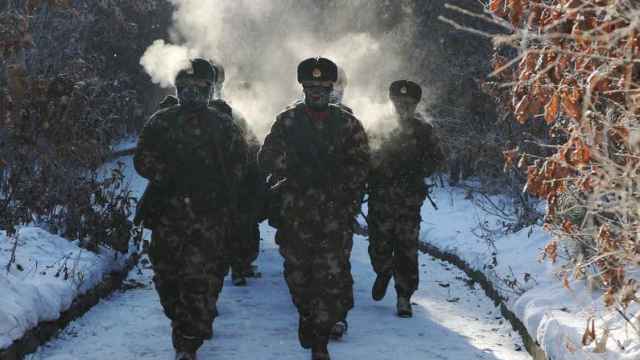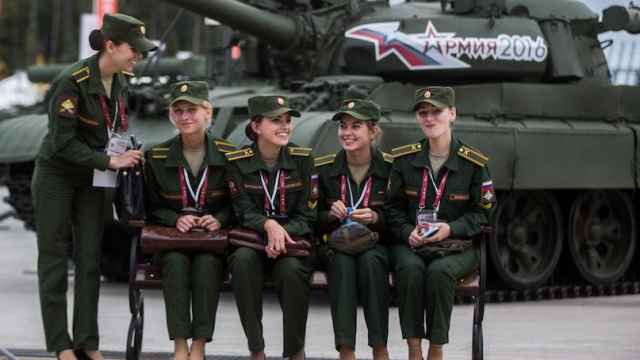Russia is hosting large-scale military exercises in western Russia and Belarus this week amid a chorus of nervous voices concerned about Russian aggression, the likes of which we have seen in Ukraine in 2014 and Georgia in 2008.
The Zapad 2017 drills are unfolding on the borders of three NATO members in the Baltics and will rehearse defending against a Western infiltration of Belarus and Russia.
There are unfounded concerns that President Vladimir Putin could impose a power dynamic in his shaky relationship with Belarussian President Alexander Lukashenko by leaving Russian forces in Belarus after the exercise.
But it’s important to remember that these strategic exercises happen every year, going back to the first Zapad exercise in 1999.
What we are going to see is a standard military drill based on a fictitious scenario where some external power has sown instability in Belarus as a casus belli for regime change.
Although it’s important to take advantage of the exercise as an important window into Russian military doctrine, and capabilities, it also serves as a reminder of the deep and enduring differences in worldview between the West — particularly the United States — and Russia.
Russia has viewed the United States in fundamentally adversarial terms since not long after the end of the Cold War. Nearly all of Russia’s military exercises have been designed to practice countering U.S. capabilities and perceived threats.
The relationship since the end of the Cold War has followed a negative trajectory despite brief periods where leaders on both sides talked about partnership and cooperation. This seems unlikely to change in the foreseeable future.
From the Russian perspective, the United States has ignored Russian strategic interests. NATO operations in former Yugoslavia in the late 90s were a watershed moment for the Russian elite. To them, it showed that a victorious post-Cold War United States had no intention of paying heed to Russian concerns over countries in its neighborhood.
The war in Georgia and the invasion of Ukraine are glaring examples of this tension. For the Russian leadership, the Maidan protests in Ukraine were simply the bookend of U.S. operations to undermine Russian interest in the region that began with Ukraine’s 2004 Orange Revolution.
The repeated criticism from Russia is that U.S. foreign policy ultimately leads to instability, whether this is along Russia’s own borders or in ongoing conflicts in Syria, Libya, Iraq, and Afghanistan.
While the effectiveness of American foreign policy adventures is certainly worth arguing over, Russia’s criticism is more about a deeper concern held by the country’s elite — that U.S. policies abroad will lead to the downfall of the Russian political system and the few individuals who benefit from it.
More than just disagreeing with U.S. foreign policy, most Russian officials are certain that the United States is actively seeking regime change in Russia through the promotion of domestic instability.
To counter this threat, the Russian government has strangled any entity it believes could challenge the regime or could promote a narrative contrary to the Kremlin’s, assassinating critics, kicking out NGOs, and taking over press outlets.
Military exercises like Zapad and other demonstrations of military power are designed, in part, to provide coercive credibility that any attempt by the United States to undermine core Russian security interests will be met by force and will extract a high cost.
Each new administration enters the White House with aspirations of fixing the relationship with the Kremlin, by repeating claims that there are areas of mutual interest between the countries and areas for cooperation. And every administration that enters the White House walks away disappointed.
What the United States needs to come to terms with is that our differences are not just a matter of personalities and they aren't just the temperament of the day.
They are the result of fundamentally different views of how countries should act in the world, conflicting national interests, and how our respective countries define our national priorities. This disparity in opinion on the international order goes far beyond the current heads of state.
Russia has continually failed to abide by international norms and play a constructive role in the international order. There is little reason to believe the current elite will behave any differently as long as they believe an international order led by the United States is a threat to their existence.
The United States needs to understand the roots of this disagreement if it is to protect itself from miscalculation or unwanted conflict and manage the relationship — even if that is all Washington D.C. can hope for at this stage.
The United States cannot wish this problem away and it’s going to be here for quite some time. What it can do, however, is try to better understand Russia. Zapad provides a small window toward that end.
Jeffrey Edmonds is a Russia and Eurasia analyst at the CNA think tank. He was previously Director for Russia on the National Security Council and acting Senior Director for Russia during the 2017 presidential transition.
The views and opinions expressed in opinion pieces do not necessarily reflect the position of The Moscow Times.
A Message from The Moscow Times:
Dear readers,
We are facing unprecedented challenges. Russia's Prosecutor General's Office has designated The Moscow Times as an "undesirable" organization, criminalizing our work and putting our staff at risk of prosecution. This follows our earlier unjust labeling as a "foreign agent."
These actions are direct attempts to silence independent journalism in Russia. The authorities claim our work "discredits the decisions of the Russian leadership." We see things differently: we strive to provide accurate, unbiased reporting on Russia.
We, the journalists of The Moscow Times, refuse to be silenced. But to continue our work, we need your help.
Your support, no matter how small, makes a world of difference. If you can, please support us monthly starting from just $2. It's quick to set up, and every contribution makes a significant impact.
By supporting The Moscow Times, you're defending open, independent journalism in the face of repression. Thank you for standing with us.
Remind me later.






